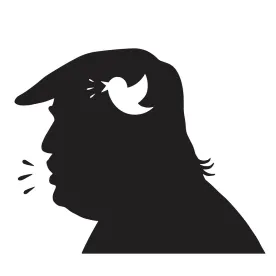On July 9, 2019, the U.S. Court of Appeals for the Second Circuit held that the First Amendment prohibits the government from blocking social media users from accessing the Twitter account @realDonaldTrump. See Knight First Amendment Institute at Columbia University v. Trump, — F.3d –, 2019 WL 2932440 (2d Cir. July 9, 2019).
The Court noted that President Trump “concedes that he blocked the Individual Plaintiffs because they posted tweets that criticized him or his policies,” and “that such criticism is protected speech.” However, the government contended that when the President took that action “he was exercising control over a private, personal account,” the character of which had not changed since it had been opened as a social media platform in 2009 to share opinions on popular culture, world affairs, and politics. The government further argued that the Twitter account is not a public forum or, in the alternative, if the Court were to find that the account was a public forum, that blocking the individual plaintiffs “did not prevent them from accessing the forum.”
The Second Circuit concluded that the “evidence of the official nature of the [President’s Twitter] account is overwhelming,” citing to the many ways in which the President and his staff have referred to the account and used the account to post items related to official government business. The Court noted that the @WhiteHouse account “directs Twitter users to ‘Follow for the latest from @POTUS @realDonaldTrump and his Administration.’” In the Court’s view, “the President has consistently used the Account as an important tool of governance and executive outreach,” and thus “acted in an official capacity when he tweets.”
The Court specifically cited to the fact that the National Archives “has concluded that the President’s tweets are official records” under Presidential Records Act of 1978 (“PRA”), 44 U.S.C. 2201, the law that establishes public ownership of all official records of the President as defined under that law. The Court noted that the PRA authorizes the Archivist of the United States to “maintain and preserve Presidential records on behalf of the President, including records in digital or electronic form.”
Having concluded that the President is a government actor with respect to the use of the account, the Court went on to hold that viewpoint discrimination through the means of blocking responses from the public violates the First Amendment. In response to the government’s argument that the account is not a public forum, the Court noted that the account had been “intentionally opened for public discussion when the President, upon assuming office, repeatedly used the Account as an official vehicle for governance and made its interactive features accessible to the public without limitation.” In the Court’s words, “[r]eplying, retweeting, and liking are all expressive conduct that blocking inhibits.” The Court went on to conclude that in light of the government’s concession that the “workarounds” available to the plaintiffs burden their speech rights, there remained a constitutional violation.
The Court did caveat that “not every social media account operated by a public official is a government account,” and went on to say that resolution of First Amendment concerns will “in most instances be a fact-specific inquiry,” depending on how the official describes and uses the account, what features are made available, and how others including government officials and agencies regard and treat the account.
In the wake of the Second Circuit’s opinion, two lawsuits have been filed in federal courts in New York against Representative Alexandria Ocasio-Cortez for blocking individuals from her @AOC Twitter account. The lawsuit by a former New York State Assemblyman can be found here.
The Second Circuit opinion can be found here.




 />i
/>i
